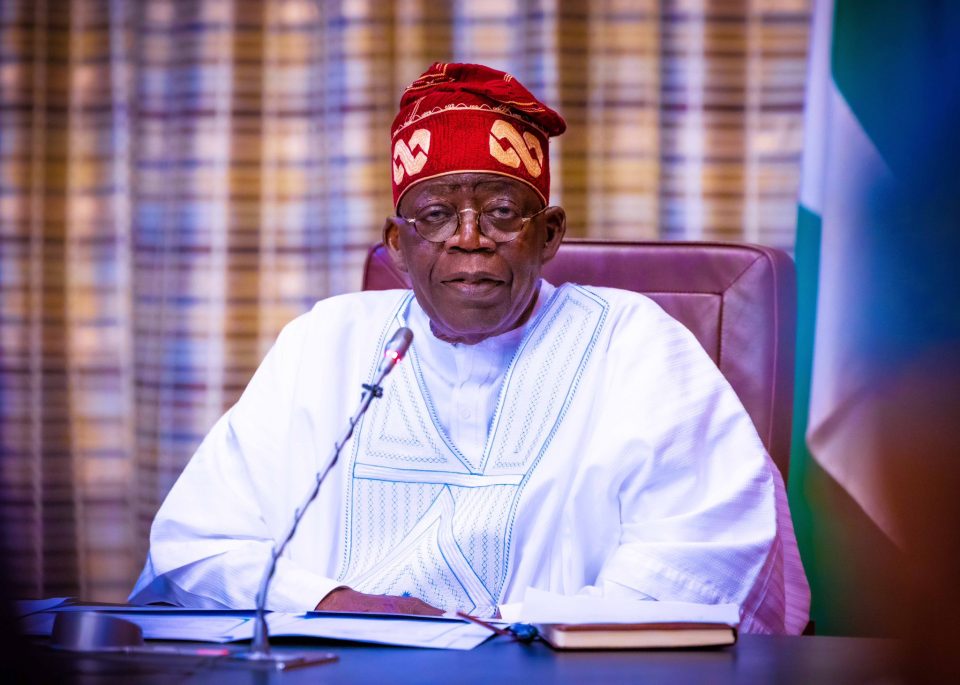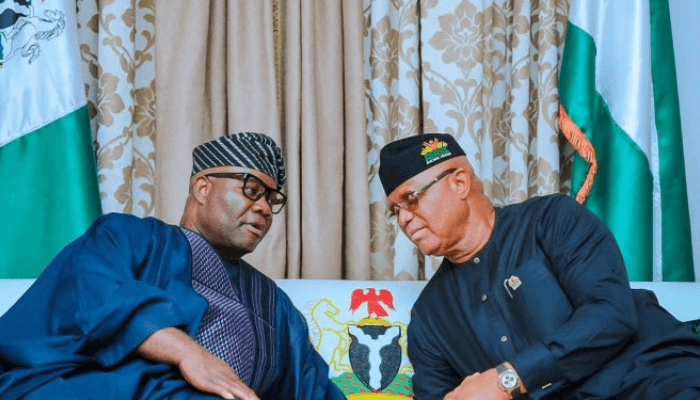Senate has clarified grey areas in its recent approval of N500 billion and $800 million for the President Bola Tinubu administration. The development had left many Nigerians bewildered, fearing the new government, like its predecessor, would increase benchmark for borrowing.
The 9th National Assembly had enabled former President Muhammadu Buhari to amass a national record breaking debt burden in eight years, going even further to approve more debts in the last days of the administration. The Debt Management Office put the total national debt at N46.25 trillion, as of December 2022.
However, Senate spokesperson, Adeyemi Adaramodu, explained that lawmakers okayed the N500 billion for use as palliatives to cushion the effect of fuel subsidy removal on Nigerians. He said: “The other issue which the Senate treated was the N500 billion palliatives, which the President asked for, to cushion negative effects of fuel subsidy removal on common Nigerians. Definitely, that may not be enough because there are many other aspects, which the government can delve into, especially as we learnt that government has been having talks with organised labour, and I think Federal Government is going to do something in that area.
“But in the immediate, what is the stopgap for, especially, dependent Nigerians, to lift them up before other palliatives come? We feel the problems, and that is why we believe that the average Nigerian must be assisted because we are running a human-faced government. When we are running a human-faced government, everything that will be done must be targeted at Nigerians.”
He added: “That was why we expeditiously acceded to the request of Mr. President because appropriations belong to the National Assembly. No kobo can be spent without appropriation by the National Assembly. It took us time to pass it because we have all pointers that this palliative is going to yield result. It is going to touch the people it is supposed to touch. That is why it was passed.”
MEANWHILE, the Federal Government is favorably disposed to raising the minimum wage to as high N200,000 per month as demanded by Labour, but state governors are urging caution, while Anambra State governor, Charles Soludo, has been asked to chair a technical working group to resolve the issues and its various dimensions.
Sources disclosed that the matter was seriously discussed at last month’s National Economic Council meeting, and it was there that the Salaries, Incomes and Wages Commission made a presentation on how the Federal Government can meet up with the demand of N200,000 per month minimum wage.
The sources added that President Bola Ahmed Tinubu is specifically and personally convinced that the demand of Labour is not unrealistic, pointing to his campaign promises as a proof of the President’s readiness.
Indeed then President-elect also said on Workers’ Day: “In the Nigeria, I shall have the honour and privilege to lead from May 29, workers will have more than a minimum wage. You will have a living wage to have a decent life and provide for your families.”
At the NEC meeting which the President inaugurated in June, the Salaries and Wages Commission costed the financial implications of the said minimum wage increase and showed how the Federal Government could pay it, with a certain recommendation that it was well within the capacity of the government. But at the meeting, state governors, who make up the membership of NEC, raised questions querying the proposal.
Leading the governors at the meeting was Anambra State governor, Charles Soludo, who argued that before adopting the presentation to significantly raise the National Minimum Wage, it would be important for NEC to first understand where the money would come, how much would come, and what states would get.
Part of the expectation and planning is that with the new Foreign Exchange policy, more naira cash would be available to be shared by the Federal Government and the states under the FAAC monthly distribution. In which case, according to informed sources, there would be enough surplus naira cash to enable significant raising of the minimum wage from N30,000 to N100, 000 monthly.
Similarly savings from the subsidy would further mean more cash inflow to the Federation Account. At the June NEC meeting, a sub-committee was formed to review the situation as was publicly announced, composed of governors led by Kebbi State governor with six other governors among the members. They are governors from Anambra, Benue, Kaduna, Bauchi, Cross Rivers and Oyo States, with each representing a geopolitical zone.
In the committee were also the Director-General of Budget Office of the Federation, Governor of Central Bank of Nigeria, Accountant General of the Federation and representative of NNPCL. Others included representatives from the Organised Labour (TUC and NLC) and Ms. Rukayyat El-Rufai, according to a statement from the Office of the Vice President who is NEC’S Chairman.
A source reports that the committee, at its meeting, soon after NEC last month, a technical working group was formed with Soludo as chairman, to interrogate issues around raising the minimum wage, understanding that it is both the federal Government and the states, not just the Federal Government that would be responsible to pay.
Under Soludo’s leadership, technical working group has met at least thrice last month: on 24, 27 and 30. One of its major resolutions was that “negotiations with Labour must be two-tracked between the federation (on the one hand) and the Federal Government (on the other.)
Later this month, NEC would meet to receive the report of the sub-committee and take a final decision on the National Minimum Wage which would then be forwarded to the President as an advisory.
Sources said what is most likely is that at the very least Federal Government workers would be receiving the huge minimum wage increase, while the agreed accrual to the states, which the Soludo technical working group is working out, would determine the fate of the states.
Specifically, the mission of the National Salaries, Incomes and Wages Commission, the agency of the Federal Government responsible for fixing the wages of workers in the federal public sector is “to achieve an equitable, affordable and sustainable remuneration system.”
Credit: The Guardian











Leave a Reply